Cats are full of charm—until they’re not.
One minute they’re purring in your lap, the next they’re knocking your glass off the table or sprinting across your face at 3 a.m. They’re mysterious, unpredictable, and sometimes just plain rude.
But as frustrating as these habits can be, they’re usually not random. Most of the time, there’s a reason behind the chaos—whether it’s boredom, habit, or just classic cat attitude.
Love them or not, these behaviors are part of what makes cats so endlessly entertaining (and occasionally infuriating).
Knocking Things Over

Cats love to explore their environment, often leading to things getting knocked over in the process. Whether it’s a glass of water, a plant, or a valuable decoration, no item is safe from their curious paws. This behavior is both a way to play and a method to gain attention.
To reduce this destructive curiosity, provide them with plenty of interactive toys and playtime. Securing fragile items out of their reach can help prevent accidents. Ultimately, understanding that this behavior is a part of their nature can ease the frustration.
Stealing Your Spot
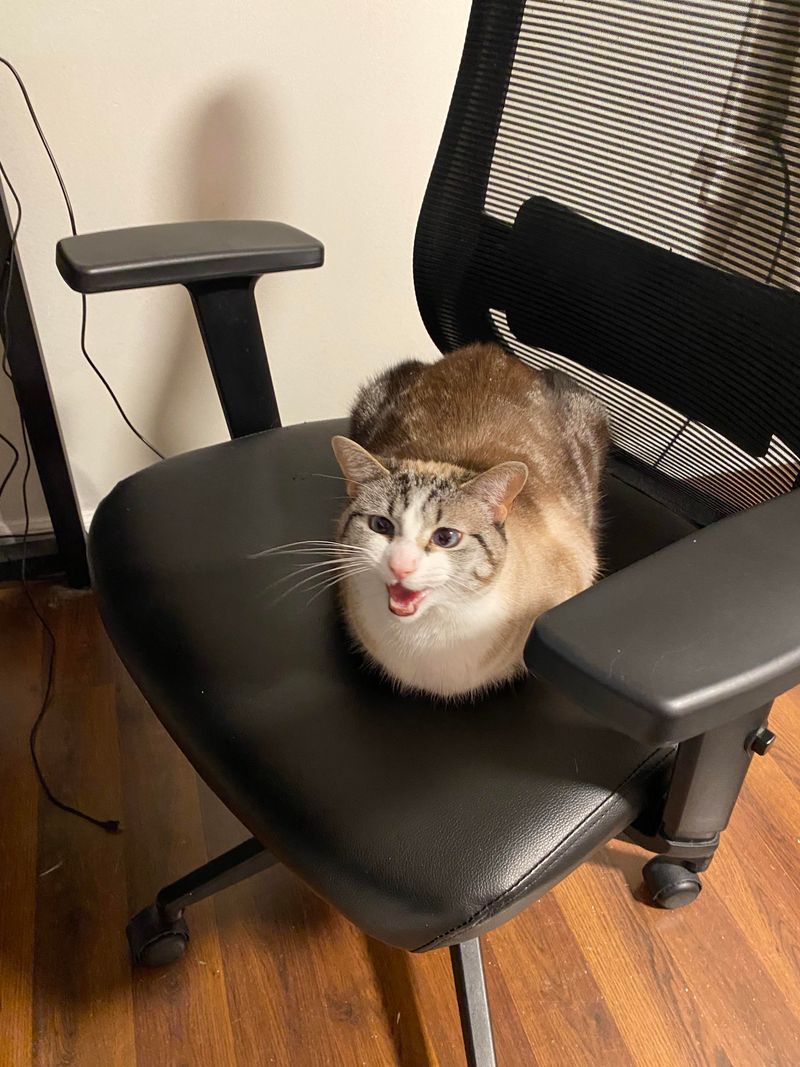
Ever noticed how your cat seems to have a radar for your favorite seat? Cats possess an uncanny ability to swoop in and claim your warm spot the moment you get up.
This seemingly calculated move often leaves you bewildered and amused. Whether it’s the allure of warmth or the desire to be where you are, cats have their own logic.
This behavior, though bothersome, is a testament to their cleverness and need for comfort. In a way, it’s a compliment—they just want to be near you.
Ignoring You Completely
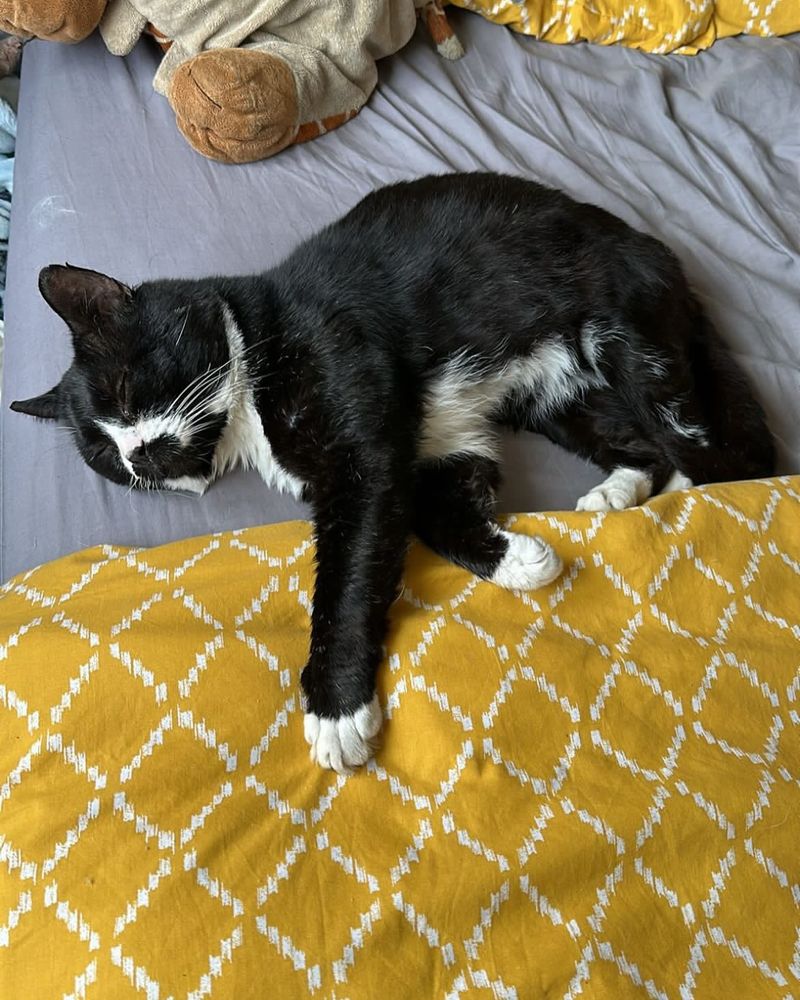
One of the most baffling things about cats is their ability to ignore you completely. Even when you call them multiple times or offer treats, they might decide to look the other way. This aloofness can be interpreted as indifference but is often their way of showing independence.
Building a bond with your cat involves patience and respect for their space. Encourage interaction with positive reinforcement like treats and affection when they do respond. Remember, this behavior is rooted in their unique personality, and appreciating it is part of the feline charm.
Sudden Nighttime Zoomies
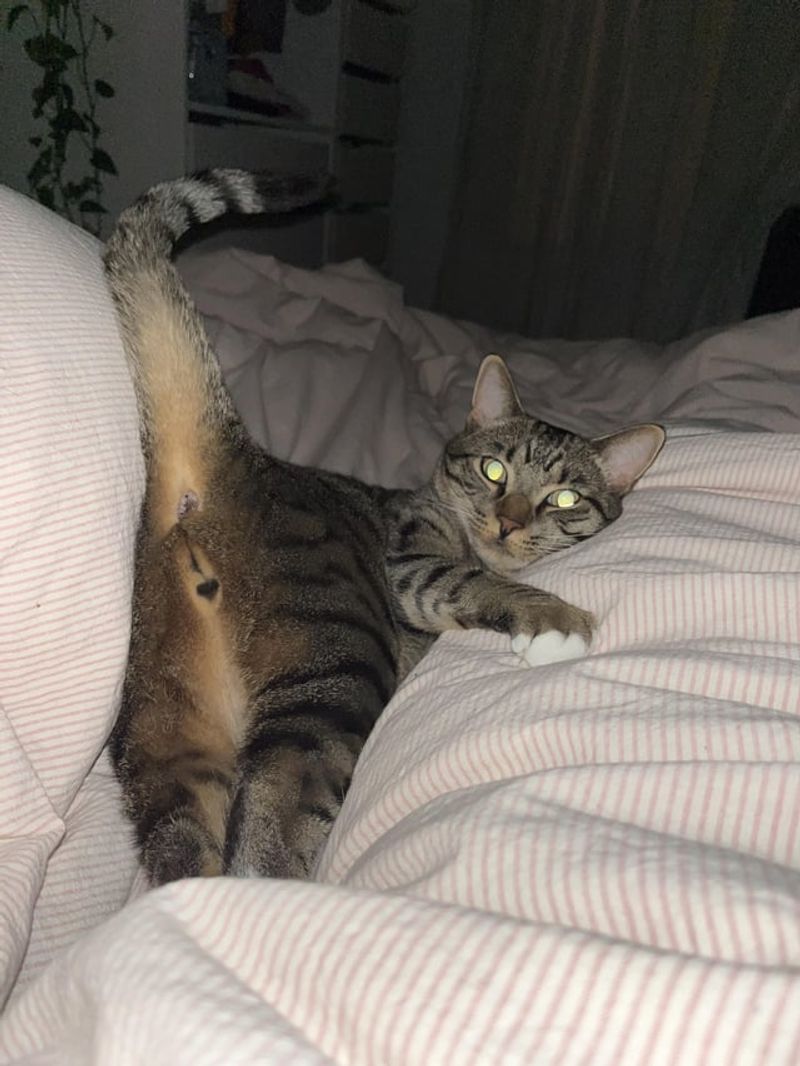
Just as you’re settling into bed, your cat decides it’s time for a wild dash across the house. This sudden burst of energy, known as the “zoomies,” is both perplexing and exasperating.
Their nocturnal antics can turn your peaceful night into a circus, leaving you wondering if there’s a secret feline agenda. These spontaneous sprints are often a release of pent-up energy, especially for indoor cats.
While it can be disruptive, it’s a reminder of their playful spirit and zest for life, turning your home into their playground at the oddest hours.
Waking You Up at Dawn
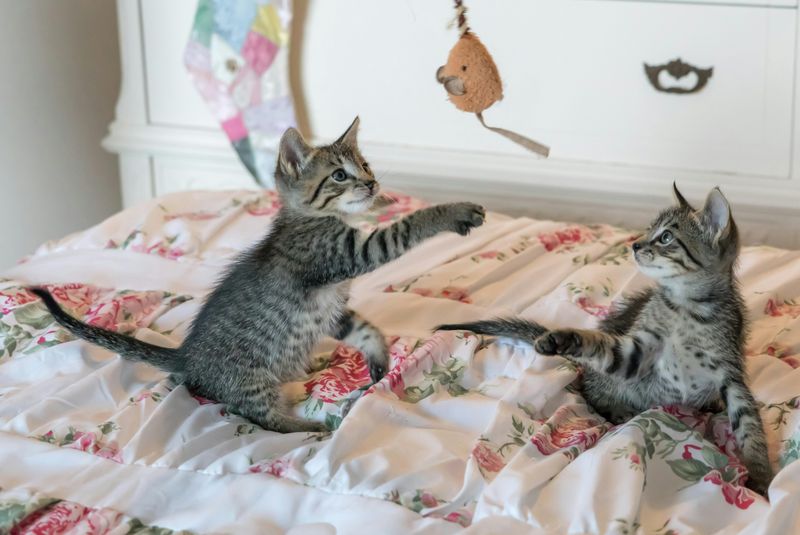
Cats are notorious for being early risers, often waking their humans up at the crack of dawn. They may paw at your face, meow loudly, or engage in playful antics to get your attention. This can be particularly annoying on weekends when all you want is a little extra sleep.
These early morning antics are usually driven by hunger or a desire for interaction. To mitigate this behavior, consider feeding them later at night or providing engaging toys to keep them occupied. Remember, patience and understanding go a long way in dealing with a feline alarm clock.
Scratching Furniture
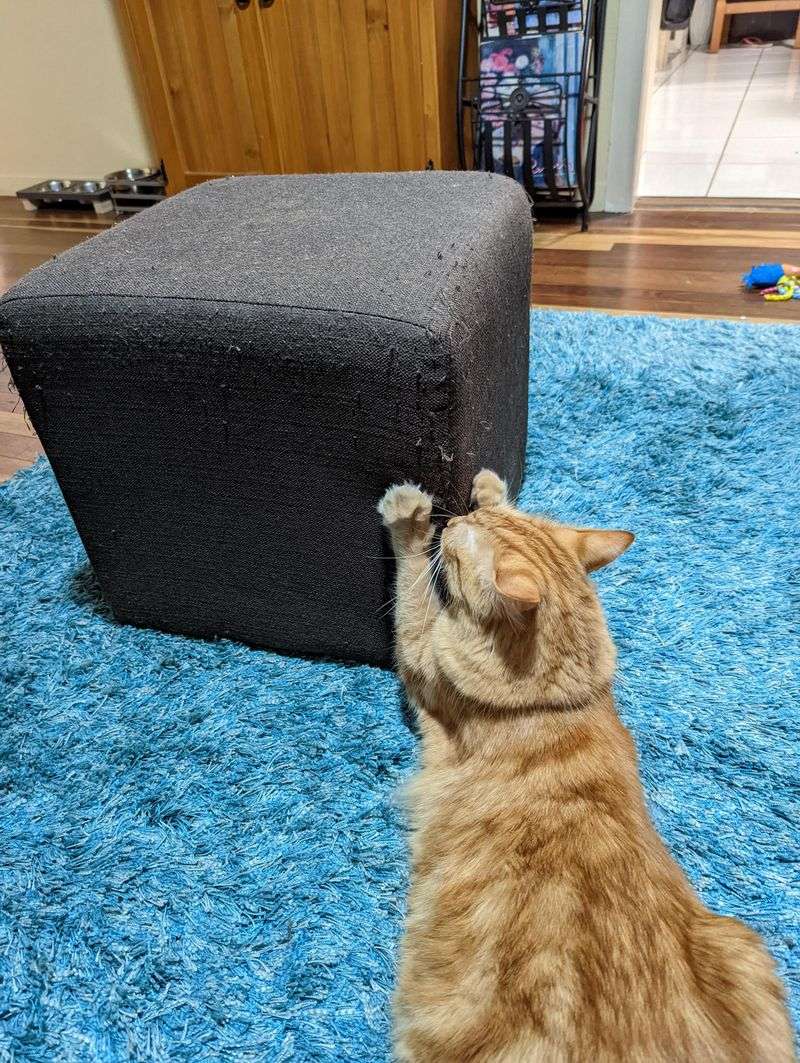
Despite having scratching posts, many cats prefer the texture of your furniture. This natural instinct helps them stretch and mark territory but can leave your couch in shambles. It’s a behavior that most cat owners struggle to manage.
Offering alternatives, such as multiple scratching posts or pads, can redirect this behavior. Additionally, using deterrents like double-sided tape or sprays can protect your furniture. Training them with rewards when they use designated areas helps reinforce the habit. Embracing this challenge with creativity makes a big difference.
Bringing ‘Gifts’

If your outdoor cat has ever brought you a ‘gift,’ you know how unsettling it can be. Whether it’s a mouse or a bird, these offerings are linked to their hunting instincts and can be quite shocking. This behavior is both a form of affection and a display of their skills.
While it may be difficult to stop this entirely, keeping them indoors can reduce hunting. Providing toys that mimic prey can satisfy their instincts. Understanding these actions as a part of their nature helps in navigating this aspect of cat ownership.
Begging for Food

Cats are masters of the art of begging, often meowing persistently or pawing at you during meals. This can be both endearing and exasperating, especially when they succeed in getting a morsel or two.
To manage this behavior, establishing a strict feeding schedule and sticking to it can help. Avoid giving in to their demands at the table, as it reinforces the begging. Providing engaging food puzzles can keep them occupied and satiated. Patience and consistency are key in curbing this demanding behavior.
Refusing to Use the Litter Box
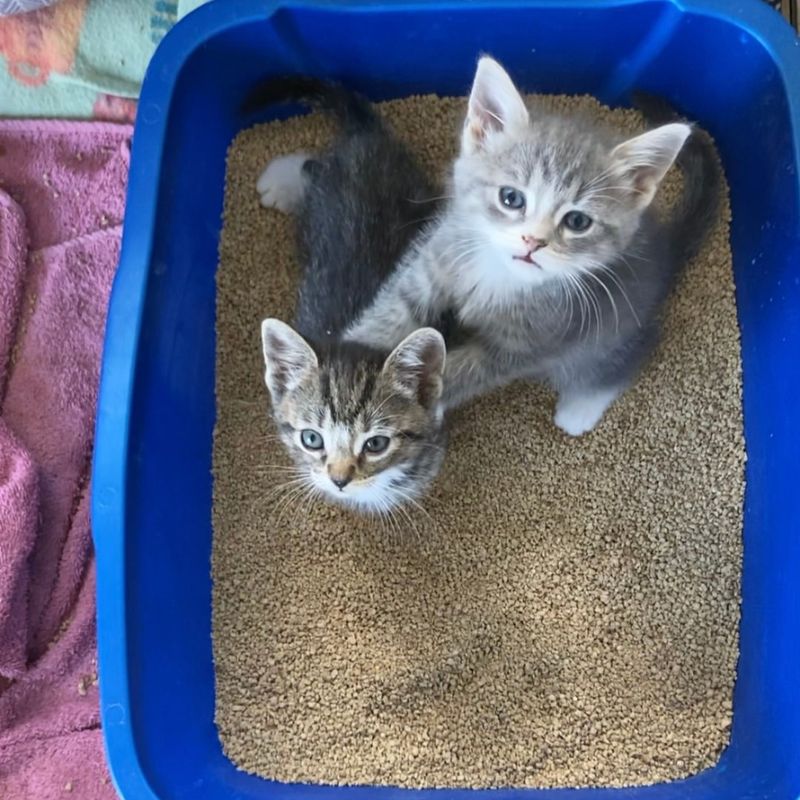
A cat that refuses to use the litter box can be incredibly frustrating, leading to messes around the house. This behavior may stem from stress, medical issues, or simply a dirty box. It requires careful observation to identify the root cause.
Regular cleaning and ensuring the box is in a quiet, accessible location can encourage use. If problems persist, consulting a vet can rule out health concerns. Patience and a gentle approach are essential in resolving litter box issues, ensuring a harmonious home environment.

